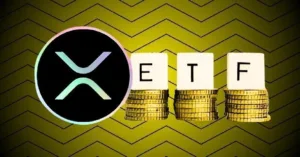Decentralized governance refers to the procedures through which a platform’s disintermediated, equitable management is carried out for blockchain networks and dApps.
What Is a Decentralized Governance?
Decentralized governance entails a variety of voting techniques for platform technology, strategy, upgrades, and regulations. On-chain governance and off-chain governance are the two most common approaches to blockchain governance.
On-chain governance is built on blockchain-based systems, which usually employ automated cryptographic algorithms as a part of the network’s computational design and consensus process. It also involves stakeholders who voting using native currencies to make changes to the blockchain directly.
On the other hand, off-chain governance refers to the decision-making process that takes place outside of the blockchain, such as on online forums or in person. Off-chain governance techniques include public debate, suggestions, and collectively agreed-upon updates.
In general terms, decentralization is a multidimensional term that involves the transfer of power and responsibility for public activities from the central government to subsidiary or quasi-independent government entities and/or the private sector. It is a type of organizational structure in which top management delegates responsibility to the middle and lower levels of management.
Decentralized networks and platforms depend on increasingly creative governance systems to secure the durability and overall real-world usage of their initiatives in the absence of a centralized authority. Traditionally, blockchain governance uses methods to make choices on project progression and ongoing upgrades and ensures that the fundamental protocols and ecosystem work smoothly and effectively.
From a global perspective, the widespread use of blockchain applications allows people to shift from the current centralized institutions and build a new social contract based on consensus rather than force, resulting in a more transparent, independent, and inventive global society. The new social contract would feature decentralized communication and cooperation platforms, as well as decentralized arbitration systems for resolving issues using smart contracts with rules agreed upon by the participants and consistent with a common law or natural law.
Roles vary depending on the structure of the network and the relationships within the decentralized network governance. This necessitates an allocation of governance responsibilities, rights, and obligations that is responsive to power dynamics among players. Furthermore, when new elements of power interactions, such as those involving server providers and miners, among others, become relevant in blockchain-based solutions, governance systems should be responsible for them.
Decentralized network governance sees power as resting in particular and dynamic connections, whereas traditional models of governance see power residing in positions. Depending on the interaction between various entities requiring governance, power might thus rest with anybody from individuals to companies to states.
A drawback of decentralized governance, however, is that a public blockchain is intrinsically volatile, and it may be forked or discarded by the community at any moment if it is no longer appealing or profitable. As a result, it is debatable whether a fully decentralized blockchain, such as Bitcoin, can be considered a universal ledger since there is no assurance that it will continue to operate or even exist in the future. Contracts and government services may become invalid due to obsolescence, disinterest, or a move to a different system.



